The Community Foundation of Western North Carolina
WE RISE
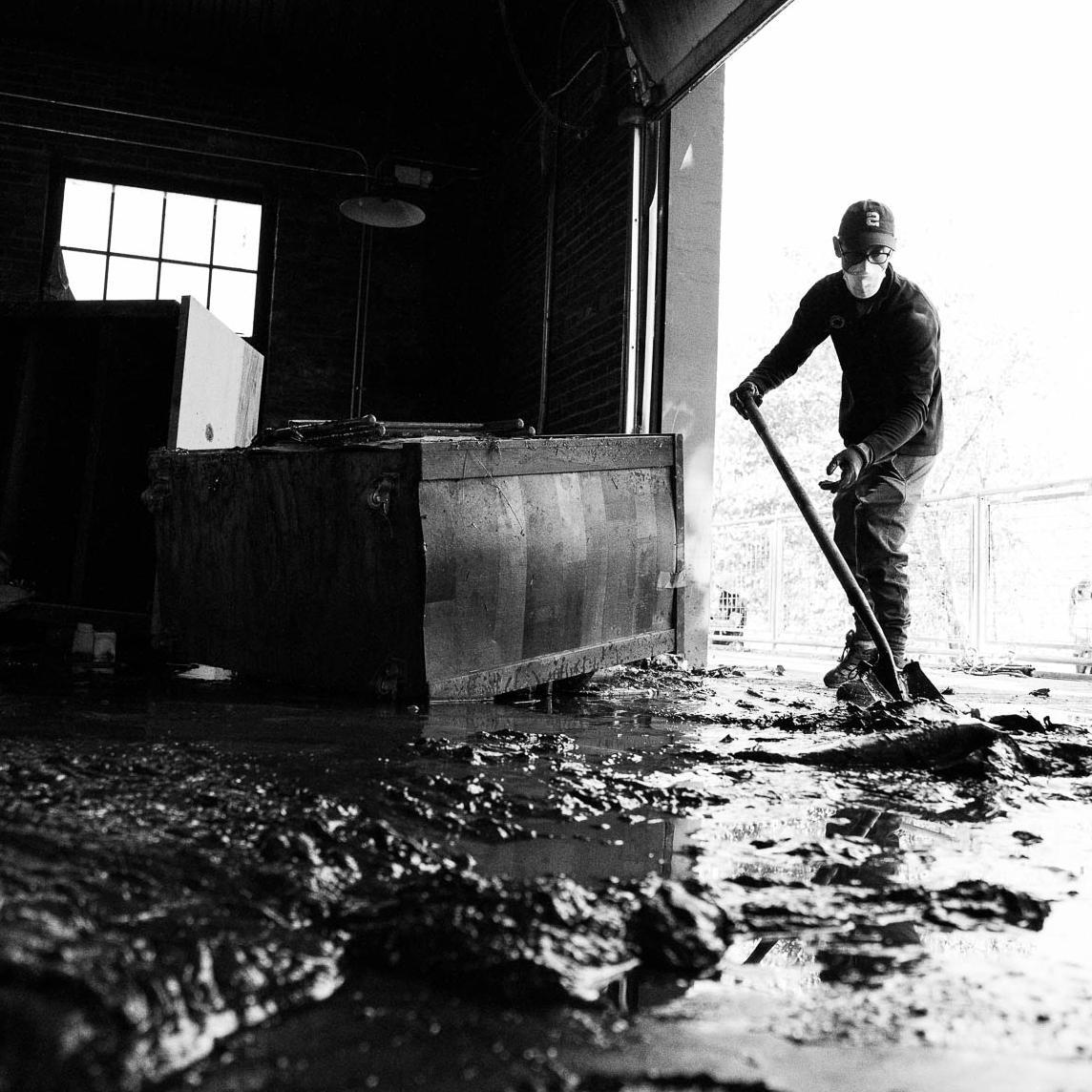
in community.WE RISE
Dear friends,
When Hurricane Helene struck, CFWNC was able to disburse funds quickly to support relief work and critical immediate needs due to an outpouring of support from people like you. Continued generosity has enabled us to distribute more than $39.5 million.
A year later, recovery and rebuilding are ongoing. More than 525 grants to nonprofits, public agencies and schools helped individuals, households and communities. Teams mobilized to undertake initial rescue, to provide water, shelter and food, and to ensure the safety of friends and neighbors. Waves of volunteers arrived to help, and many are still here.
With their commitment and expertise, a coordinated effort is underway to repair our damaged infrastructure, forests and streams; to address an exacerbated housing crisis; and to support people as they rebuild their lives, and communities as they rebuild their economies.
This storm taught us lessons. We are more effective in alliance with others, and we gratefully accepted the extended hands and offers of help. We have come to understand that in times of disaster we focus more on what we have in common and less on what divides us. Our interconnectedness is a strength, and we rise through mutual aid and with trust in each other.
We rise in community, with strength and concern and care for others. The stories included are a snapshot of what we experienced here. We want to share what we’ve learned with others. We want to show up for others in the way that you all did for us.
We are honored that so many of you gave and chose to do so through CFWNC. We are forever grateful.
“This storm taught us lessons. We are more effective in alliance with others, and we gratefully accepted the extended hands and offers of help.”
Elizabeth Brazas, President
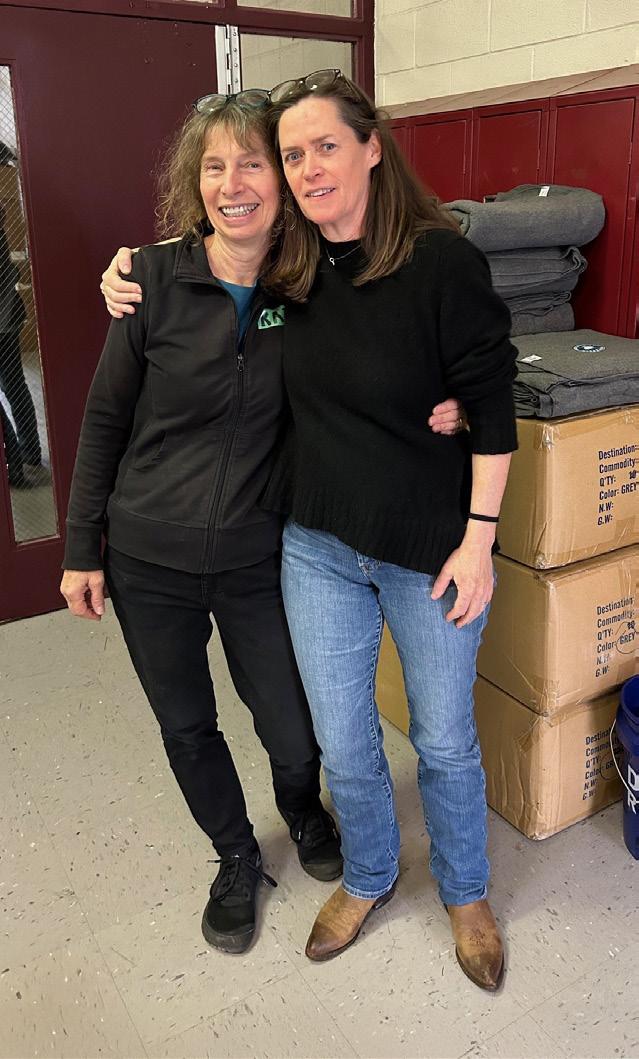
Immediate Emergency Needs
Water/Medicine/ Food/Clothing
First Responder Equipment/Vehicles
FEMA Application Assistance
Household Mucking/ Tarping/Gutting
Crisis Communications/ Internet Access
As the scale and breadth of Helene’s damage became apparent, hundreds of nonprofits, agencies, schools, first responders, churches, and volunteers stepped up to meet needs.
NECHAMA arrived in WNC on October 6 and set up base in Hendersonville. It began accepting volunteers, referred by local and national Jewish organizations and other groups. Originally, intending to deploy for 6 months, NECHAMA plans to remain in WNC through the end of September 2025.
NECHAMA sourced projects from Crisis Cleanup, Buncombe County Sheriff’s Office, Henderson County Recovery Group, Habitat for Humanity, and individual pastors. During this deployment, it has mucked and gutted houses, mitigated mold and removed debris at 52 properties in fourteen communities in WNC. Volunteers have partially or substantially rebuilt sixteen houses in Asheville, Black Mountain, Flat Rock, Hendersonville, Marion, Mills River, Old Fort, Swannanoa, Pisgah Forest and Weaverville.
Economic Impact
NECHAMA is a valued member of the NC Volunteer Organizations Active in Disaster and the long-term rebuild coalitions in Buncombe and Henderson Counties. As a volunteer-based organization, NECHAMA has recruited more than 850 volunteers who provided more than 11,500 hours of labor.
Emergency Heat/Power
Children and Families
Public Health/Safety
Housing Infrastructure Environment
Volunteers play a critical role in recovery. They undertake necessary and difficult work, but also provide important emotional support and hope.
What Your Donations Made Possible

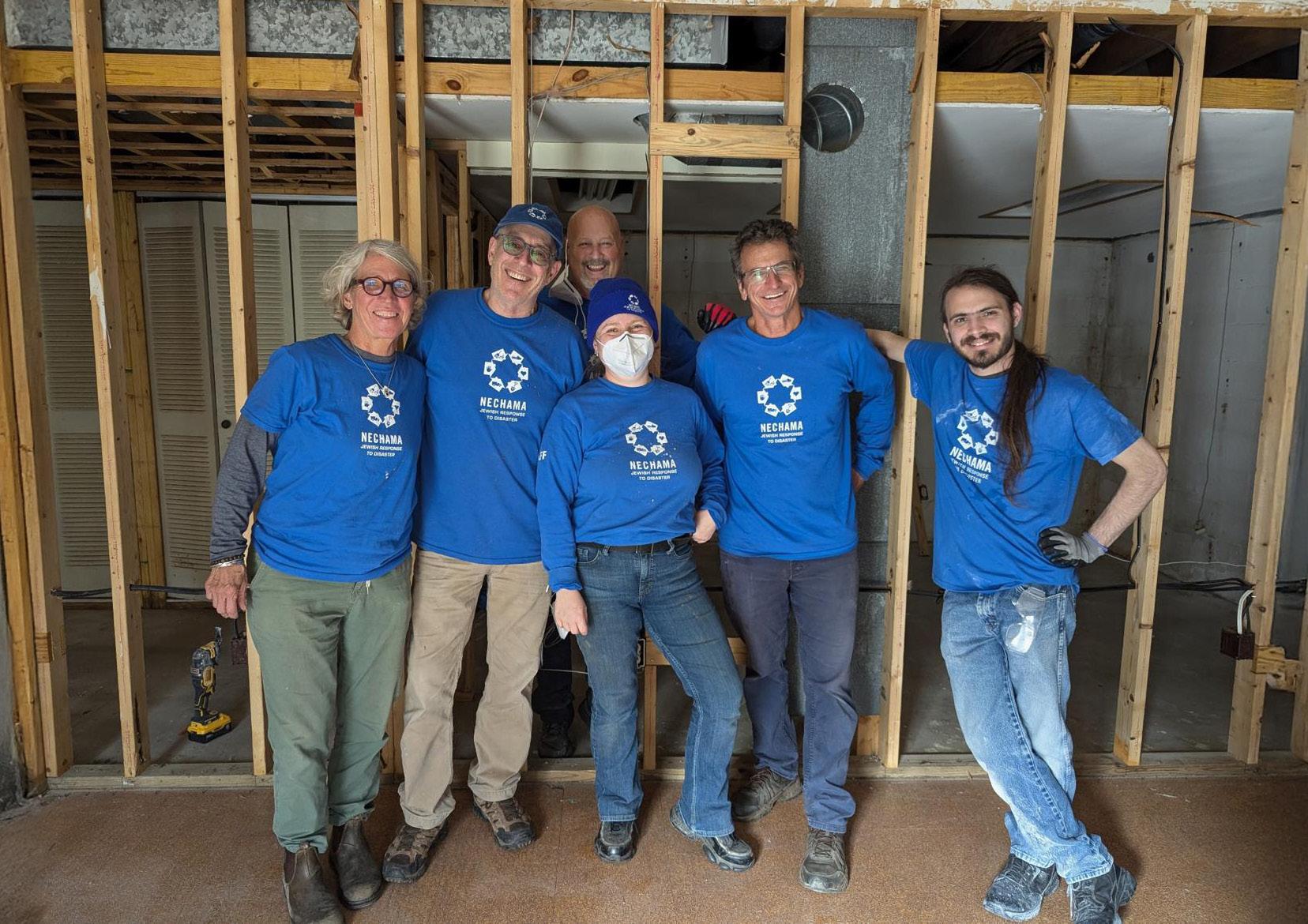
“In the midst of the catastrophe, I received a call out of the blue from NECHAMA, informing me that they were coming in response to my request and need for help. The healing they’ve brought to my life is indescribable, almost unfathomable! NECHAMA not only picked up the pieces of my broken home but all the broken pieces I had become. I am now filled with their love and laughter, their kindness and caring. They helped me prepare my home to be rebuilt and to rebuild my life as well.” NECHAMA Client
Children and Families
Health/Mental Health
Substance Abuse
Youth Support During Out of School Hours
Support for Schools/ Colleges/Childcare Centers
Elder Care/Services
Addressing Domestic Violence/Child Abuse
Helene was profoundly disruptive on so many levels. Working with partners to safely open schools and childcare centers and ensuring services for vulnerable populations was an early focus.
Economic Impact
Due to power outages, loss of water and damage to roads and facilities, some WNC schools were closed for weeks. In many rural areas, schools and community colleges served as relief centers and distribution hubs.
Infrastructure
EDRF donors helped schools, educators, administrators, and childcare workers find stability and access services as they worked to support children and families.
In October, funds were awarded to Avery, Mitchell and Yancey County school systems to provide each public school in these rural and very hard-hit counties $25,000 to help meet NC Department of Public Instruction requirements for reopening.
Childcare recovery was critical to the whole recovery ecosystem. The Smart Start Partnership for Children in Hendersonville was able to assist three family childcare homes in reopening, with the support of an EDRF grant. These three facilities serve approximately 20 children. All the parents at one facility are first responders and therefore needed to be on the ground immediately after the storm.
A grant to the YWCA helped transport Mighty Sinks that allowed its childcare programs to reopen without clean/potable running water, as required by state childcare licensing. It also funded some of the salaries of its staff who ran a distribution center that opened only four business days after the storm and served 1,500 of its neighbors.
What Your Donations Made Possible


One of McDowell Technical Community College’s Emergency Management students was serving as a dispatcher for the county when Helene struck. He was working 70 to 80 hours per week, balancing intense professional responsibilities while trying to keep up with his coursework. The demands became too great, and he took an emergency withdrawal to avoid damaging his GPA. Thanks to EDRF funding, his outstanding balance was covered, allowing him to return to school and continue his progress toward a career in public safety.
“It was
a difference-maker that CFWNC allowed public agencies — including schools and community colleges — to apply for early relief in addition to nonprofits and faith organizations.”
Mebane Rash, EdNC
YWCA
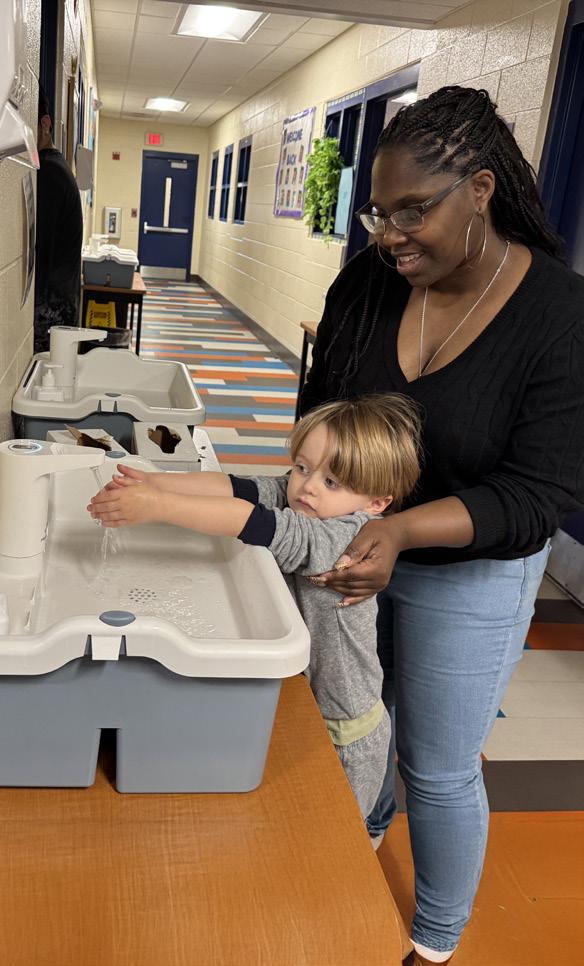

“Losing the school was the hardest thing I’ve done professionally, and it was very hard personally, just to handle the feelings from the loss.”
Melanie Bennett Former Principal Micaville
Elementary
Housing
Temporary Shelter/ Permanent Housing
Home Repair/ Remediation/ Demolition Replacement of Household Contents
Rent/Utility Assistance
Strong partnerships, volunteers, labor and innovative ideas were funded to address immediate and long-term housing issues. Rebuilding efforts continue, and recovery will take years.
Baptists on Mission was awarded $25,000 to purchase supplies for urgent home repairs and $1.5 million to operate sites to mobilize, support and coordinate volunteers to repair homes in Buncombe, Henderson, Mitchell, Yancey and Haywood counties.
Infrastructure Environment Economic Impact
More than half the cost of building is labor. With volunteers, Baptists on Mission can double or even triple the number of families returning to their homes.
As of July 5, it has completed 333 home rebuilds, with 363 in progress and a total of 1,204 rebuild requests. It has opened five rebuild centers in Burnsville, Spruce Pine, Clyde/Canton, East Flat Rock and Swannanoa and expects to be working in WNC for the next four to five years. It has been operating a long term rebuild center in Canton since 2021 in response to Tropical Storm Fred.
“Support from CFWNC was a game-changer in our ability to respond to the disaster. Within days of applying, we received funding to stabilize housing for vulnerable people. We assisted families in finding new housing and removed barriers to moving. With other CFWNC funds, Thrive Asheville was able to layer support and invest in collaborative housing work, benefitting residents across multiple agencies by helping them to access new housing or remain stably housed during this time of upheaval. I cannot say enough about the responsiveness of staff and this critical support.” Kate Pett, Thrive Asheville
What Your Donations Made Possible

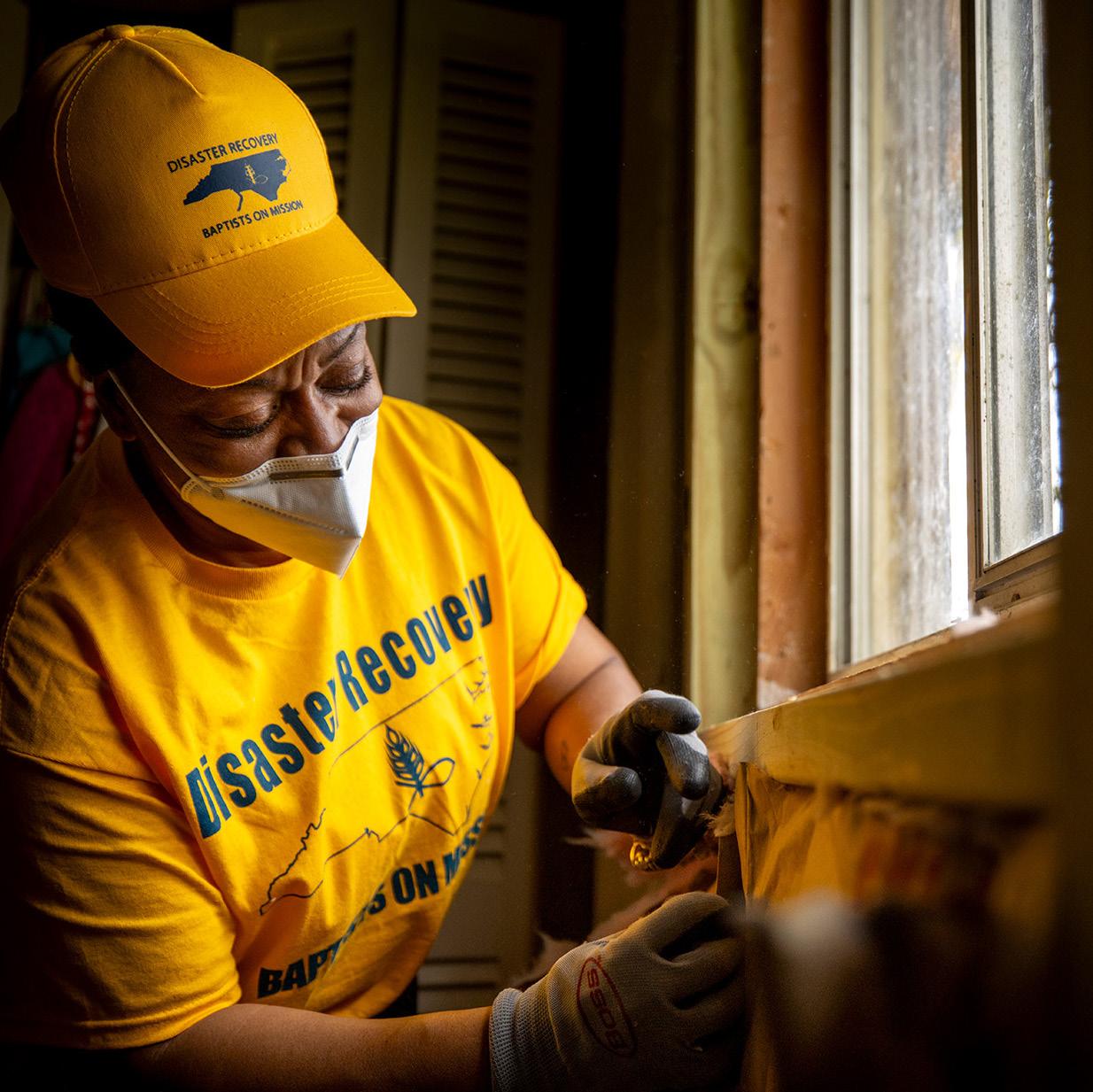
“When Helene hit, we started feeding people; next came chainsaw jobs, house mud-outs and tear outs; and then we started working to help get people back in their homes.”
– Richard Brunson, Baptists On Mission Executive Director/Treasurer
“There’s a difference in philanthropy that is tethered to what’s actually happening on the ground, and I think you being in these communities, seeing firsthand what principals and superintendents actually needed, helped inform both the quickness of the response and also the fidelity with which you were able to tailor the grantmaking to individual needs.”
Mebane Rash, EdNC
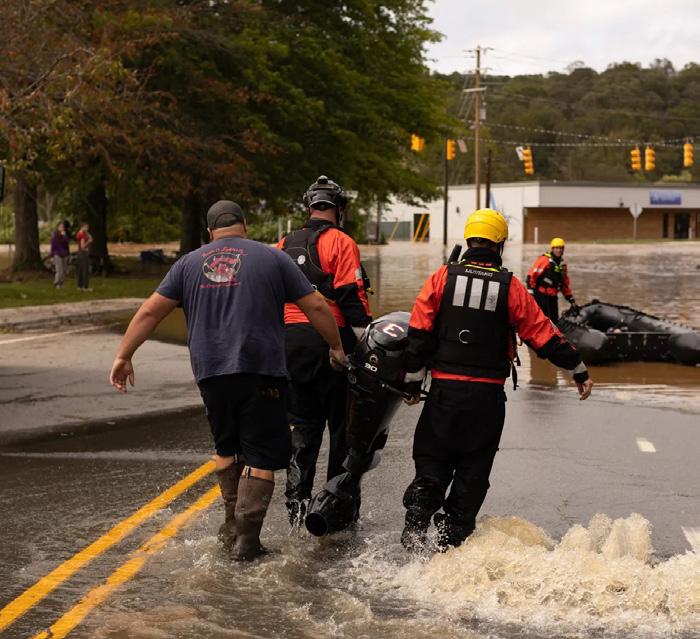
through mutual WE RISE
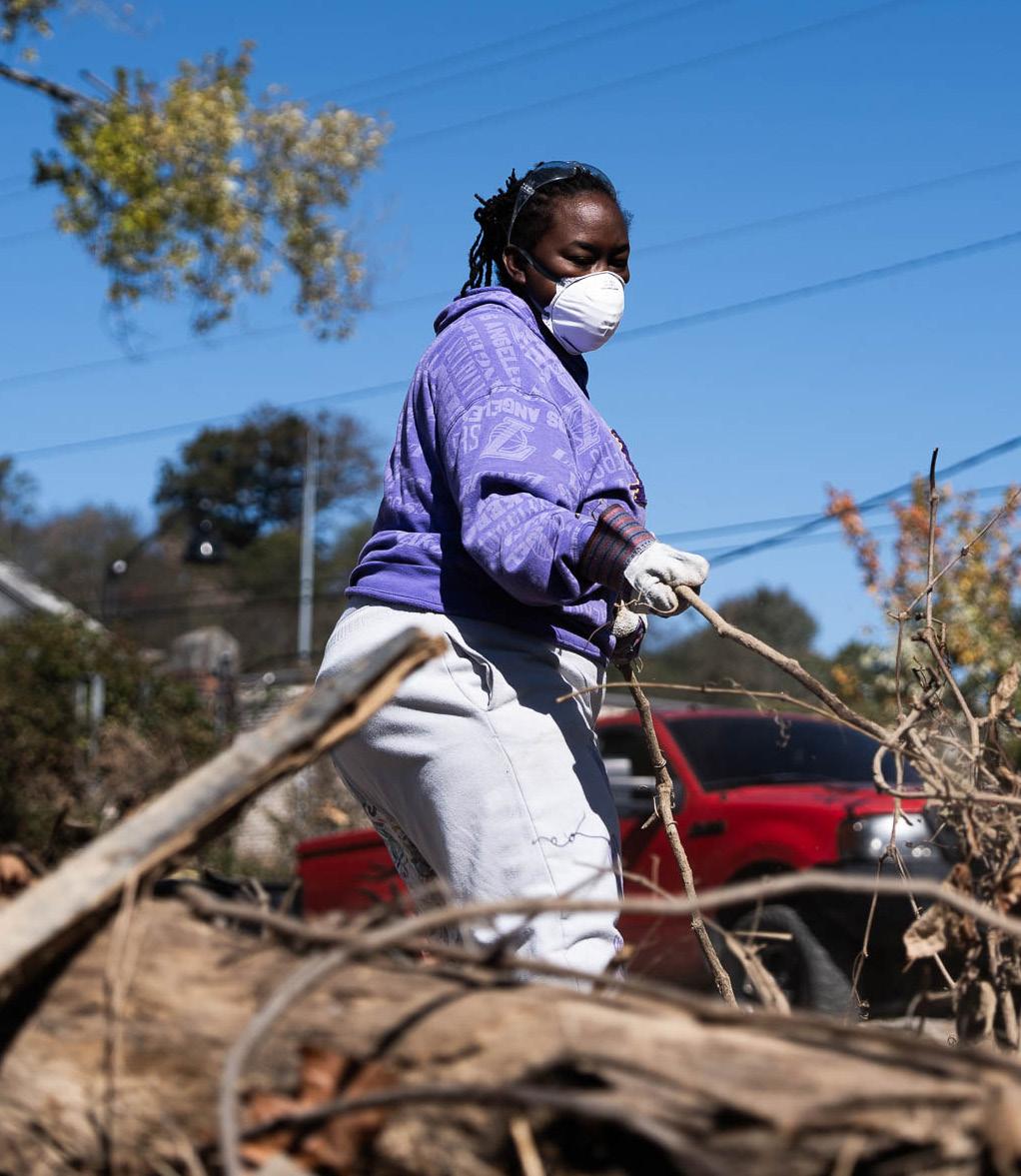

“Climate change is real. We hope this helps you recover.”
EDRF Donor
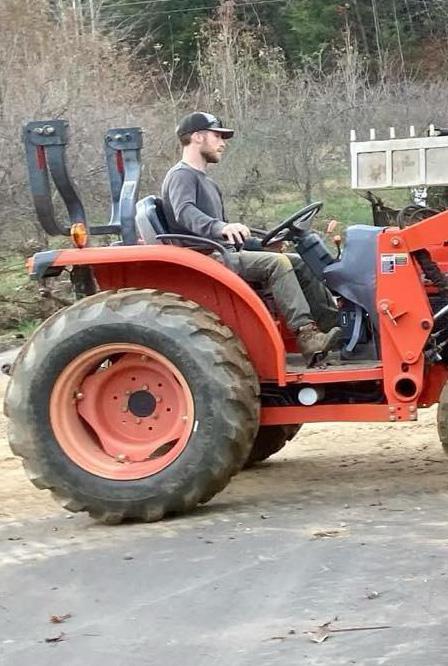
mutual aid. RISE




“Since October 2024, Just for Him Ministries has been honored to serve as a tool in the hands of this generosity. Together, we’ve completed several hundred disaster recovery projects across Henderson, Rutherford, Polk and Buncombe counties. Our volunteers, over 80 per month from more than a dozen states, were simply the hands. You were the source. Because of your gift, 100% of the materials needed were provided and lives were rebuilt.” Ken McGee, CEO
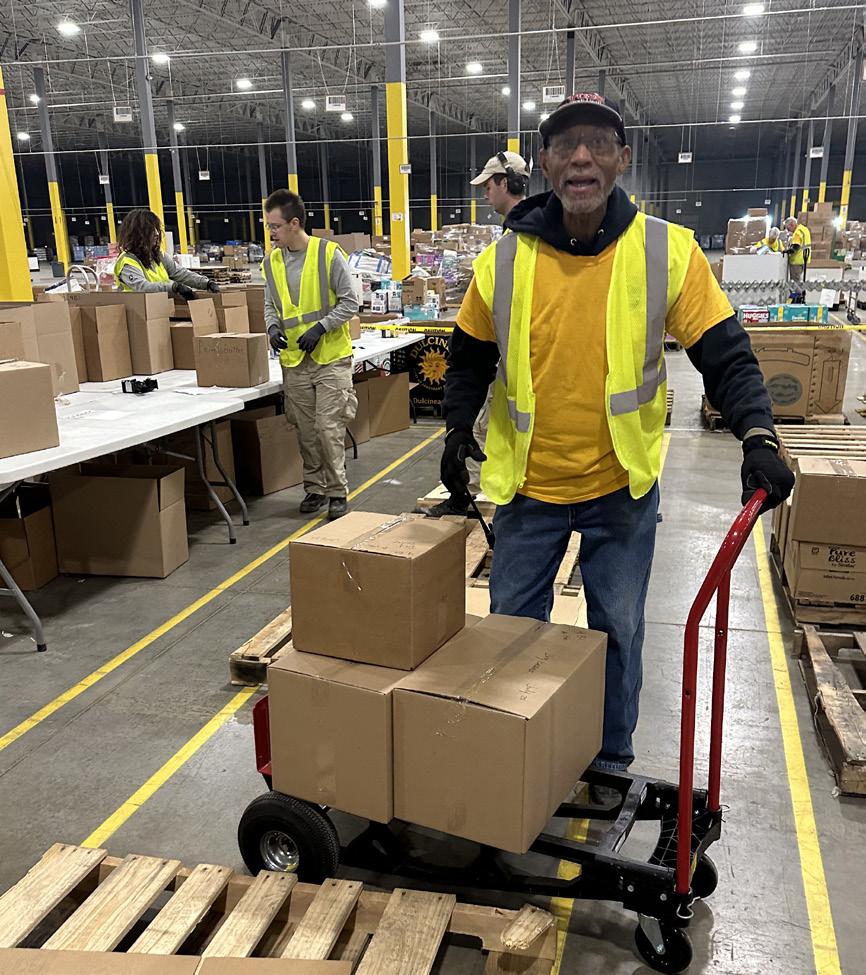
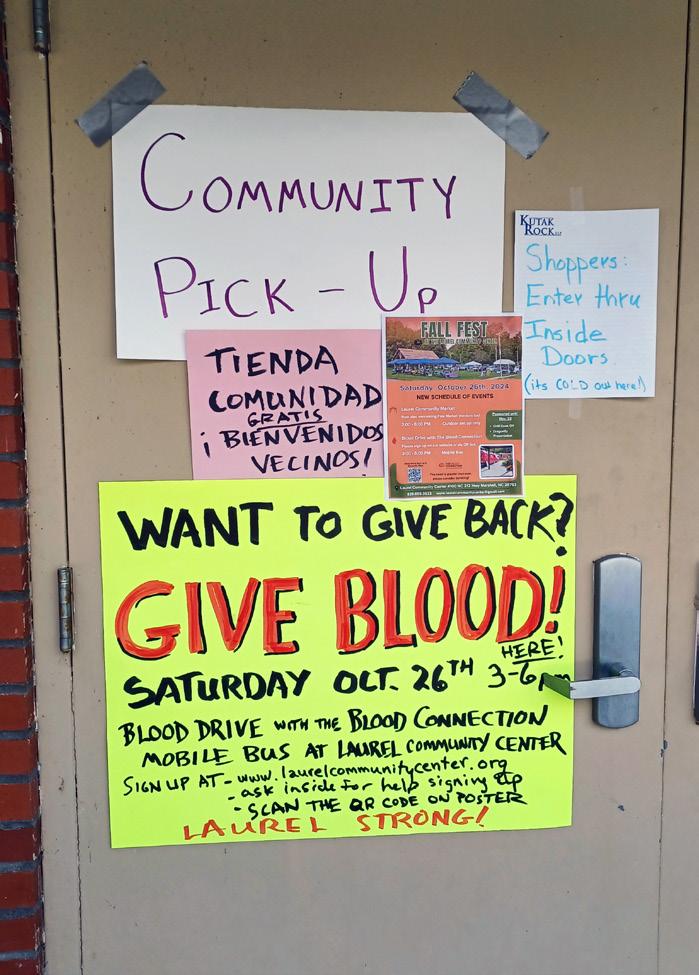
Environment
Streambank Restoration
Downed Tree and Debris Removal
Forest Management
Community Garden/
Farm Remediation
Trail Remediation
Conservation Stewardship
Water Quality
Helene caused significant and widespread damage to WNC’s forests, waterways and farmland. The heavy rainfall and winds led to flooding, landslides, and debris flows that altered landscapes and disrupted ecosystems.
Your support has been funding key partners addressing the environmental impact and rebuilding WNC’s local food systems and outdoor tourism economy.
“We have an active and dedicated network of nonprofits working in land and water conservation and protection. They pivoted immediately to deploy their experienced teams to clear trees, stabilize streambanks, assess water quality, develop plans and engage volunteers,” said Vice President for Programs Tara Scholtz.
“Early support gave us the flexibility to act immediately — testing water, wells, and soil when communities needed it most. Larger grants helped us pilot a river restoration program that leveraged significant state funding to clean up and restore waterways across WNC and the Qualla Boundary,” said Bob Wagner, MountainTrue Executive Director.
Assessments/ Improvements
Infrastructure
Along the Blue Ridge Parkway, 30 inches of localized rain and peak sustained winds of up to 60 miles per hour caused thousands of downed trees, damage to facilities and multiple landslides that weakened structural integrity and destroyed miles of trails and roadway. The Great Smoky Mountains National Park and the Appalachian National Scenic Trail were also significantly impacted, and their repair is critical to the recreational economy and the well-being of communities.
What Your Donations Made Possible

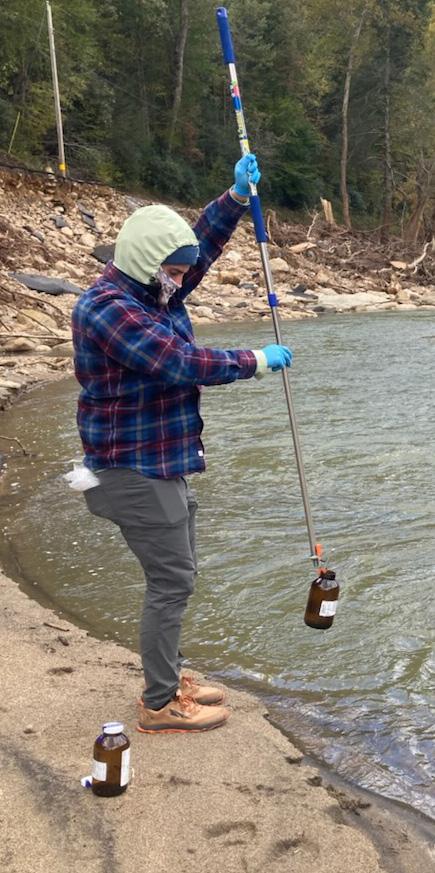
Funds are helping MountainTrue re-envision and prepare communities like Swannanoa, Hot Springs, and Marshall — not just to recover, but to thrive in the face of future climate challenges. Their approach is grassroots yet professional and effective, drawing on experience while staying forward-thinking and hopeful.
“It is essential that we ‘make way’ for our waterways to increase flood resilience and reduce future losses. We are engaged in ensuring a sciencebased, comprehensive approach to our rivers’ and region’s recovery.”
Lisa Raleigh, RiverLink CEO
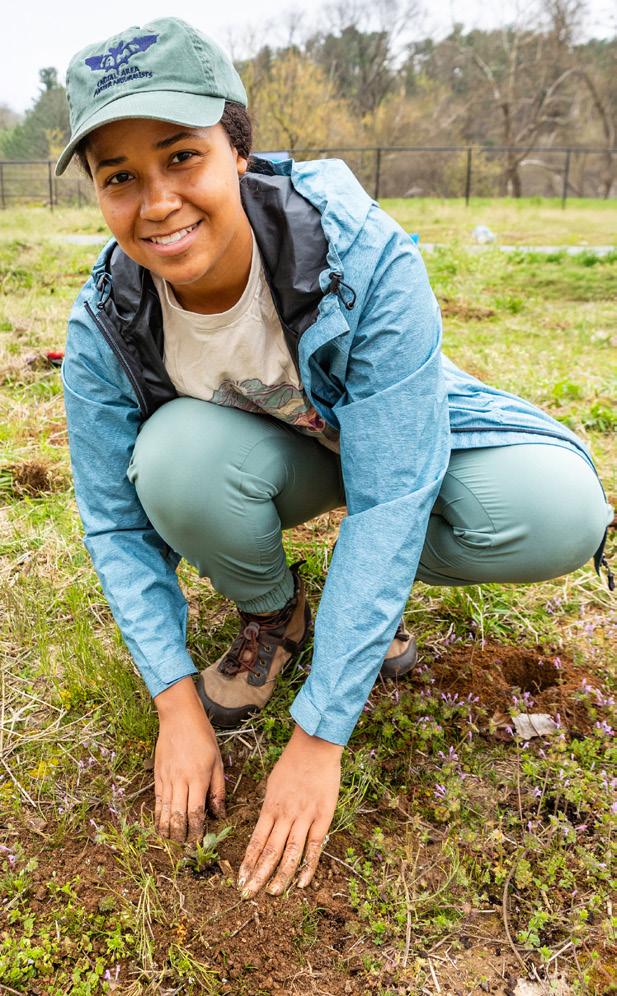
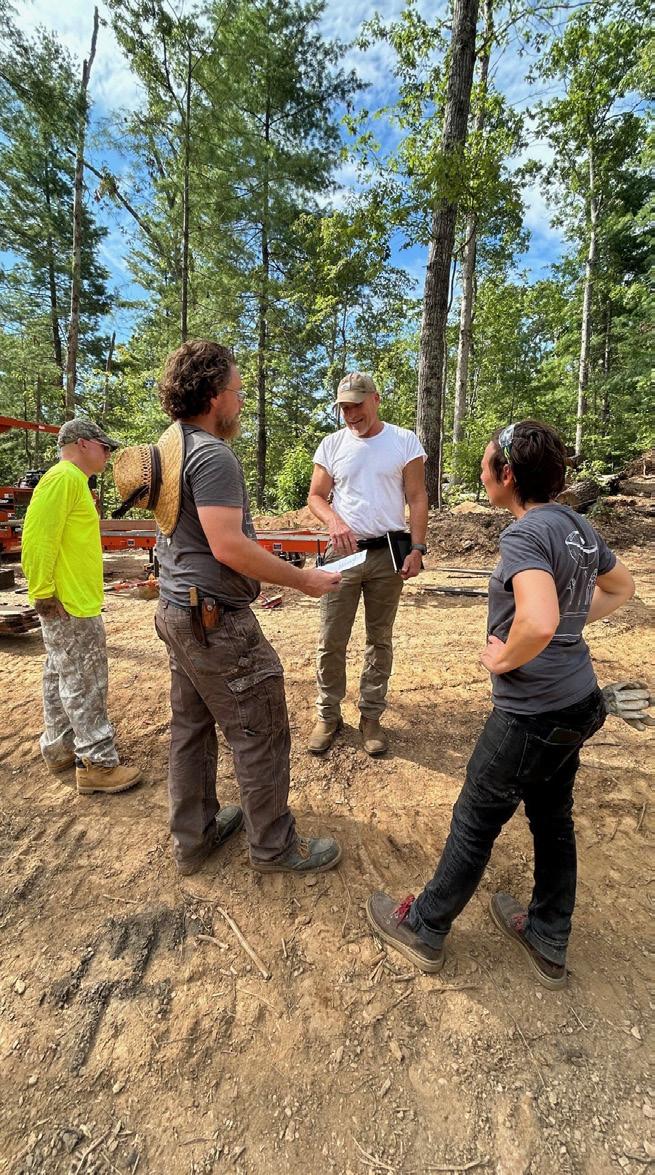
“It’s
just so important that this wood gets utilized in the communities it came from. It certainly is a full circle moment.”
Dave Misson, UNCA STEAM
Studio Sawmill Coordinator
Infrastructure
Road and Bridge Repair
Site Stabilization
Nonprofit Facility Repair/Remediation
Temporary Laundry/ Shower Facilities
Distribution Hubs/ Facility Modification/ Increased Overhead
Damage Assessments/ Resiliency Planning
Preliminary Engineering Reports
Helene destroyed roads, bridges, power grids, water systems and facilities. Recovery includes repair, rebuilding, resiliency planning and preparation for future disasters.
Skilled volunteers and crews were deployed to rebuild roads and bridges and to repair nonprofit facilities. Some came pulling laundry and shower facilities, while others set up distribution hubs in isolated and difficult to reach communities.
In November, $2 million was awarded to NC Synod, Evangelical Lutheran Churches of America to partner with Mennonite Disaster Services in rebuilding private bridges destroyed by Hurricane Helene.
The bridges are designed to be built by volunteers in about a week’s time. Wooden-decked steel beams are placed over concrete abutments, with steel pilings driven to bedrock, to span streams and prevent catching debris or disturbing ecology. The structures are more easily maintained, and more resilient than the bridges they replace.
The project prioritizes the hardest hit areas in Avery, Mitchell, Yancey, Madison, Rutherford, and Buncombe counties and bridges that impact multiple families or critically vulnerable persons.
EDRF grants for assessments and planning support a comprehensive approach to reconstruction that prioritizes strengthening communities, infrastructure, and buildings to withstand future events caused by climate change and extreme weather.
What Your Donations Made Possible

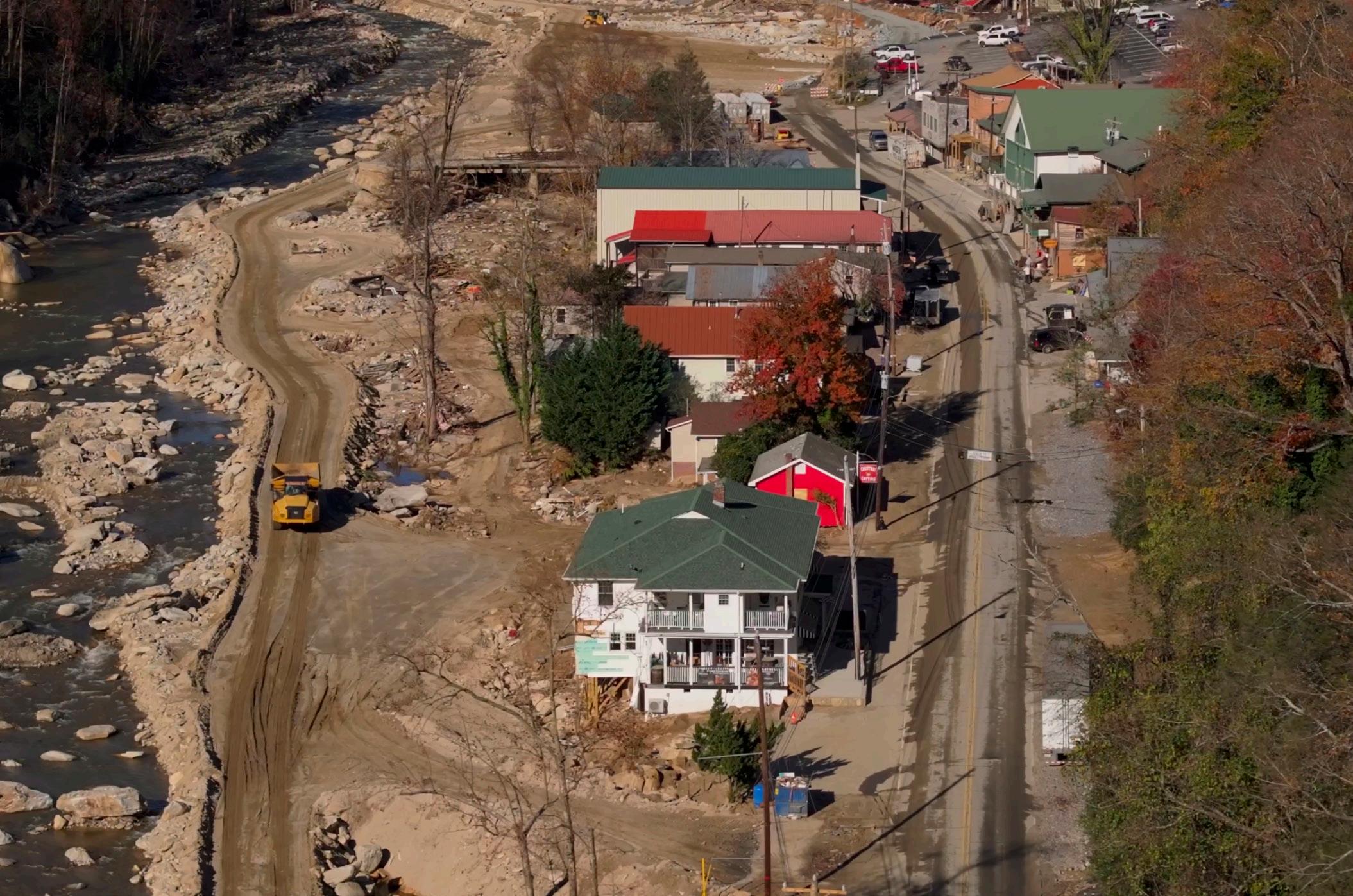
The Southwestern Commission Council of Governments received $1.5 million to contract engineering firms to produce PERs, Preliminary Engineering Reports, required to apply to state and federal grant programs. Each PER evaluates feasibility, scope, and cost, essential components of a competitive application. This technical assistance is critical, as many small and rural governments lack the capacity or financial resources to develop PERs independently.
Economic Impact
Staffing Costs for Hurricane Response
Financial Assistance to Farmers/Craftspeople/ First Responders
FEMA-Ineligible/ Hospitality Workers/ Educators and School Staff
Small/Rural Business Support
Car Repair/Car
Replacement/ Transportation
Offset Costs for Volunteer Groups
Assisting in Recovery
Helene devastated small businesses, leaving many with extensive damage and severe, extended closures and losses. The impact to infrastructure and the economy has been staggering, with artists and creative businesses hit especially hard.
Infrastructure
According to FEMA, 40% of small businesses do not reopen after a disaster, and those already facing barriers are more vulnerable to permanent closure. With the support of donors and funders, CFWNC made grants to nonprofits providing financial assistance to hospitality workers, artists, teachers and school staff, rural businesses, first responders and volunteer groups assisting in recovery.
The storm hit during the peak tourism season, forcing extended closures and cancellations, and significantly reducing foot traffic and tourism-dependent sales. Mountain BizWorks launched a program providing immediate financial support through direct grants to help businesses reopen, retain jobs and stabilize operations. Through grants to the Center for Craft and Arts AVL, aid was delivered to creative workers across the region including to arts nonprofits not supported through other small business grant opportunities. The awards addressed business interruption, income loss, and job retention.
In addition to lost income, organizations and businesses faced rising operational costs from emergency staffing, marketing, and equipment replacement, while redirecting resources to community needs. Recovery has been slow and uneven, with some still unable to reopen or resume full operations, and long-term financial impacts are expected well into 2026.
What Your Donations Made Possible

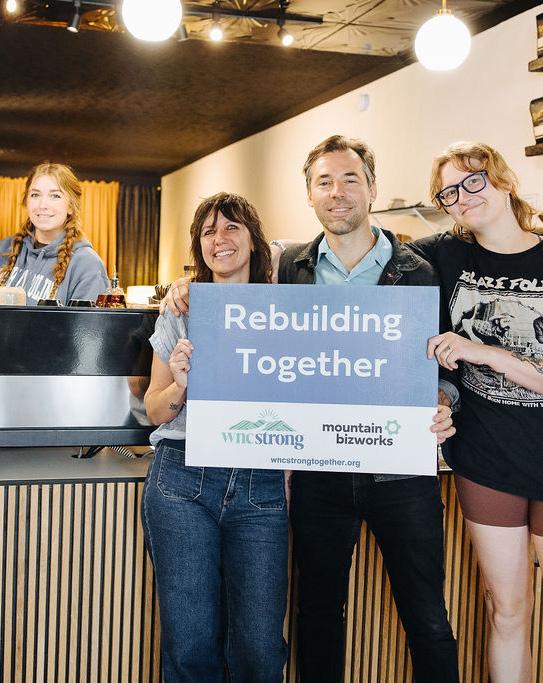
“Funding came at a critical moment for us,” said Nathan Smith of Seeker Coffee in Old Fort. “With this, we’ve been able to retain staff and start some slated build-out storage space for our shop that had been delayed. Thanks from all of us!” Nathan’s story is just one example of how Mountain BizWorks’ Rural Rebuilding
Together Grant Fund supported 149 small businesses in 15 rural communities, awarding $2.39 million total to help WNC towns recover forward post-Helene.
The first phase of the Center for Craft’s Futures Fund helped 820 artists meet immediate needs after the storm. The second phase is focused on longer-term recovery for 40 individual craft artists through the WNC Craft Futures Cohort. Woodworker
Kwado Som-Pimpong, below, is a member of the cohort.

“I cannot overstate how important this support has been to many school staff members. It came at a critical time for both physical and emotional recovery. I don’t know if some of the educators out there would still be in our schools, or even still in our region, if it weren’t for this opportunity. It has been a lifeline.”
Jeff McDaris Ed.D.
WRESA Emergency Services
Retired Superintendent
$1 million was awarded to provide direct financial assistance to school system staff in counties devastated by Helene that experienced housing or transportation loss.
WE RISE
through the kindness of friends and strangers.
Your contributions encouraged us and made a significant difference on the ground. As you have seen in the preceding pages, our region was changed by this storm. Needs were immense and immediate. Your donations supported people and communities as they came together to clean up, restore and rebuild. An inspiring spirit of determination and mutual aid developed through need and was strengthened through collaboration, partnership, and your support.
CFWNC is not charging a fee on donations to the Emergency and Disaster Response Fund, meaning that every dollar is supporting recovery. As long as people continue to give, we will direct the funds out to fund ongoing work. The North Carolina Community Foundation is making grants to support longer-term recovery. nccommunityfoundation.org
The work is ongoing, and it will take years. But funding for quick, early grants and recovery meant that nonprofits and organizations could move forward knowing that resources were there. Your donations were a lifeline in a time of deep, extended crisis in WNC.
The fundraisers you hosted, the concerts you attended, the supplies your purchased, the care and concern you have shown to this region, the funds you have so generously given – these all lifted our morale and spirits and helped us move forward.
We are deeply grateful to the funders that contacted us in the days immediately following the storm to check on us, to offer emotional support, and to commit funds for our response. We were profoundly supported by our community foundation colleagues in NC and around the country, along with many of their fundholders. Our WNC funding partners, Dogwood Health Trust and WNC Bridge Foundation, have stood with us from day one. As always, we remain grateful to CFWNC’s fundholders, who continue to support our work, and our Board of Directors for their guidance and commitment to CFWNC’s role as a philanthropic first responder.
People requested donations in lieu of wedding gifts, because they love to hike and kayak here, perhaps they remember a vacation or summer camp, or maybe they see what happened here and think of their own homes and communities. The reasons for giving are as varied as the people, businesses and foundations that made contributions, but the impulse to help is universal.
We did rise through the kindness of friends and strangers. We are inspired by you and offer our heartfelt thanks.
MANNA FoodBank is the food distribution hub for 16 of CFWNC’s 18 counties. The damage to its facility was complete and threatened food access for potentially hundreds of thousands of people.
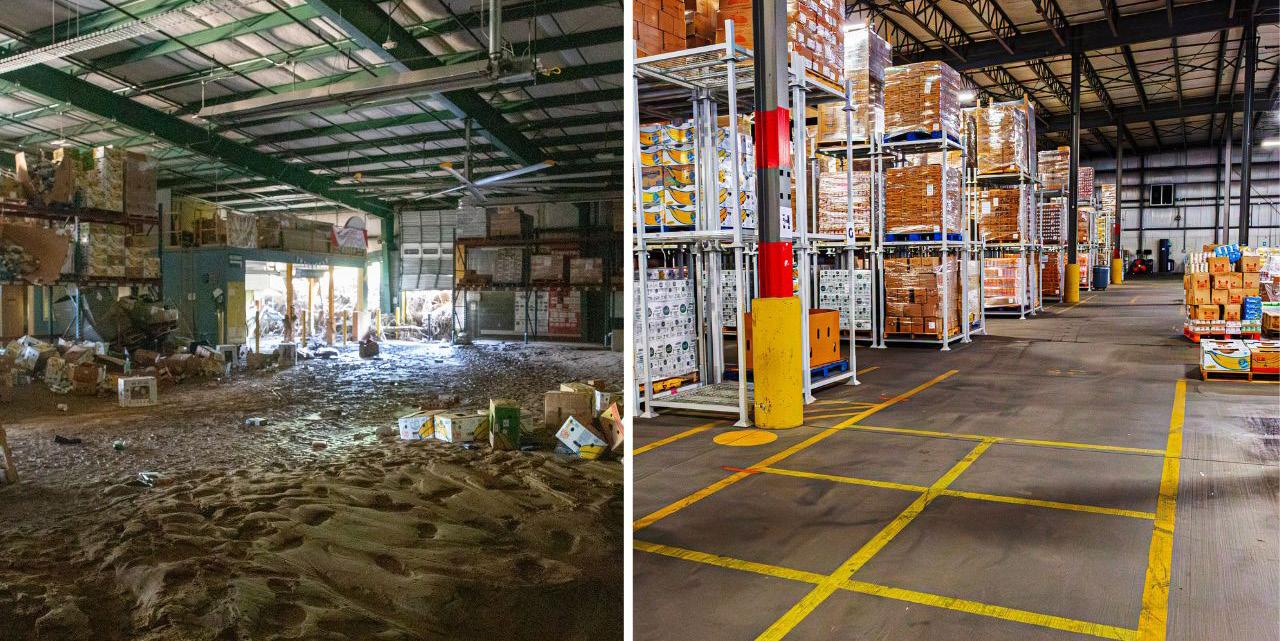
A $7 million grant, made in partnership with the North Carolina Community Foundation, will help MANNA complete the upfit at a new facility.


